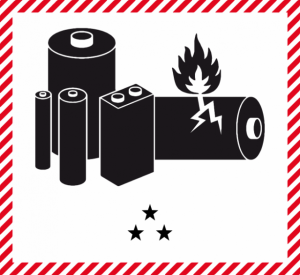What is the duration of the deep cycle lithium batteries used in RVs?

When you think of the possible power that a battery could offer, what comes to mind? Maybe start your car’s ignition and hear the engine churning and the power turning on. Alternatively, you can press and hold the laptop’s side power button to watch the screen light up. Though they are both widely used, did you realize that the deep-cycle battery in your laptop and the starting battery in your car use entirely different battery types to produce electricity? This blog post will concentrate on the latter.
It is possible to deeply deplete a “deep cycle” battery, which means it can get to a low state of charge before needing to be recharged. It has a lengthy duration of continuous power supply. Deep cycle batteries are made to resist numerous cycles of charging and discharging, in contrast to starting batteries, which are geared for briefly starting an engine with high current. Continuous cycles of charge and discharge do not cause a noticeable reduction in performance or capacity. Deep cycle batteries are used in many energy-storage-dependent applications, including renewable energy systems, recreational vehicles, and marine applications. For RV battery packs, deep cycle batteries are the best option.
However, with so many varieties of deep cycle batteries available, which deep cycle RV battery is the best and most durable? This article examines deep cycle batteries made of lithium, AGM, and lead acid.
Deep cycle lead-acid battery
Lead-acid deep cycle batteries offer a dependable, long-lasting power source. One of the most crucial problems with lead-acid deep cycle batteries is that, despite their ability to tolerate numerous cycles of charging and discharging, they must never completely drop to 0%. Sulfation, which reduces battery life and performance over time, may result from doing this.
The longevity and effectiveness of your lead-acid deep cycle batteries are maximized with regular maintenance. This entails maintaining appropriate ventilation, keeping batteries dry and clean, and checking and regulating the electrolyte levels in flooded lead-acid batteries—the most prevalent type of lead-acid batteries.
Deep cycle lead-acid batteries contain several disadvantages while being reasonably priced and capable of fulfilling a variety of energy requirements. Environmentally harmful components such as sulfuric acid and lead must be managed with appropriate recycling and disposal techniques.
Deep cycle AGM battery
Traditional lead-acid deep cycle batteries are similar to AGM (absorbent glass mat) deep cycle batteries, however they differ in their structure. The design of AGM batteries consists of fiberglass mats saturated in electrolyte, which is a solution of sulfuric acid and water, in between lead plates. Even in cases when the battery is broken or tipped, the electrolyte is absorbed by the fiberglass mat, which acts as an insulator to keep the electrolyte in place and stop leaks.
Compared to other battery technologies, these batteries have a marginally lower energy density. This implies that their weight and size may have reduced capacities, which is problematic for applications where it’s essential to maximize energy storage in a constrained area. In general, AGM batteries cost more than conventional flooded lead-acid batteries. AGM battery capacity may progressively decline over time, just like that of other lead-acid batteries. This deterioration process can be hastened by exposure to severe environments or frequent deep discharges. The life of your battery can be increased and this issue can be mitigated with routine maintenance and appropriate charging procedures.
When examining AGM deep cycle batteries, it’s critical to remember that, contingent upon the particular requirements of the application, they provide a variety of benefits as well as risks. Even while somewhat reduced energy density and increased cost could be deterrents in some situations, taking good care of oneself and paying attention to environmental elements and charging procedures could be beneficial.
Lithium Deep Cycle Batteries' Various Applications
Instable situations and even power outages persist in the contemporary world. Batteries for UPS systems or emergency backup power frequently use lithium technology.
It is not the same as depending on a generator or other form of backup energy system when using lithium batteries for backup. If vital equipment needs to be linked to a steady power supply, it will deliver power very instantly, which is essential.
A variety of essential devices, such as computers, communications technology, and medical technology, benefit from lithium batteries and the backup power they offer.
Furthermore, the globe is depending more and more on solar energy. It is anticipated that by 2050, solar energy will provide 20% of the energy demands of the United States alone.
Extra electricity produced by solar panels can be stored in lithium batteries, which are excellent for storing energy. It’s true that there are days without sunshine even in the middle of the desert. Solar equipment occasionally requires repairs as well. You won’t run out of power if you store energy with lithium-ion batteries.
The fact that lithium batteries charge in a manner compatible with solar panels is one of the reasons they are utilized for solar storage. Another cause is the speed at which they charge. Low resistance is needed to charge lithium batteries, and solar panels provide it.
Because these batteries charge so fast, users may take full use of the sun’s potential energy storage for each minute they spend in the sun.
Compared to conventional battery technology, lithium deep cycle batteries provide numerous advantages and have completely changed the energy storage industry. These batteries are a popular option among consumers since they offer dependable, long-lasting power. This guarantees a steady supply of electricity even in the absence of active electrical generation from the renewable energy source (i.e., when there is no wind or sunshine).
Lithium battery benefits
Compared to all other traditional battery technologies, deep cycle lithium batteries offer an exceptional energy-to-weight ratio, lightweight design, and small size. This is quite helpful in situations where weight and space are crucial, and it can be seamlessly incorporated into many different devices and frameworks without sacrificing functionality. Lithium deep cycle batteries have a high energy density that allows them to store a lot of energy in a little amount of space, increasing their storage capacity and prolonging their runtime. Increased efficiency and longer uptime are guaranteed by this efficiency. They are simple to use in place of lead-acid batteries because to their design.
Moreover, lithium batteries have quick charging—they recharge more quickly than traditional batteries, cutting down on downtime. For time-sensitive applications that demand rapid charging, such quick journeys in an RV, this capability is quite helpful.
How long are deep cycle lithium batteries expected to last?
Multiple cycles of charging and discharging are tolerated by lithium deep cycle batteries without a discernible loss of capacity. Because of its three to five thousand deep drain cycles, Maxworld Power batteries can last up to ten times longer than lead-acid batteries.
Ample warranties (like the lengthy guarantee that many reliable lithium battery products, like Maxworld Batteries, provide with) and a high life expectancy make them a good option for the finest RV batteries and many other uses. For a minimum of five years, dependable power is guaranteed by this extended warranty. Given that lithium batteries have a longer lifespan, the financial benefits are particularly obvious, making them a more sensible choice in the long term.
Most folks have straightforward expectations for an RV battery. Consumers anticipate that RV batteries will perform well in a range of temperatures and will provide the energy they claim. To put it briefly, they want to be able to operate the heater when the temperature decreases, turn on the lights at night, and turn on the air conditioner during hot weather. The best RV batteries should be economical over the course of its lifetime, even though reliability is quite important. The best RV batteries need to last for a long time before losing value.
Deep-cycle lithium batteries may cost more up front, but over time they will be less expensive than alternative technologies.
Test Results-Deep Cycle Battery Performance
First off, deep-cycle lead-acid batteries perform appallingly even under perfect conditions and at low discharge rates. The lead-acid batteries were tested at the voltage suggested by the manufacturer; however they were unable to achieve their rated capacity. Nevertheless, at all discharge rates, lithium-ion batteries outperform their stated capacity.
An additional significant discovery is the cost-benefit analysis. Remarkably, in terms of cost per watt hour, the more costly AGM cells that were tested fared worse. Lead-acid batteries that have been flooded have consistently shown to be the least expensive.
Cost Analysis-Deep Cycle Lithium Winners
Let’s now discuss lifetime expenses, with a focus on deep cycle batteries. Lithium batteries were the obvious winner, according to the Mortons’ investigation’s findings. Lithium batteries have a life cycle cost that is two to six times less than that of lead-acid batteries. Over time, there may be large cost reductions from this.
According to Morton’s research, lithium batteries have a far higher return on investment (ROI) than other battery technologies. With time, there is less need for replacement, which lowers the cost of ownership dramatically. One further significant benefit of lithium batteries is their minimal environmental effect, which is achieved by lowering the need for replacements. Reducing the frequency of battery replacements helps to create less waste and lessens the environmental impact, which will help to create a more sustainable future.
Recyclability is a key component of lithium battery ROI. Lithium battery recycling is growing in popularity. We can recover important materials that can be used again by recyclinglithium batteries. This encourages the manufacture of batteries and waste management in a circular manner.
In summary
Energy storage options have been completely transformed by lithium deep cycle batteries, which offer efficiency and dependability in a wide range of uses. Maxworld lithium batteries offer a longer service life and reduced overall expenses, which demonstrate their return on investment. It’s also a good option for the best RV battery because it requires fewer replacements, has recycling potential, and has an industry-best ten-year warranty with no environmental impact. Adopting lithium batteries is a wise financial move.






